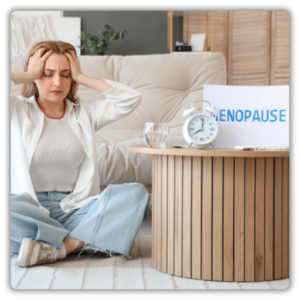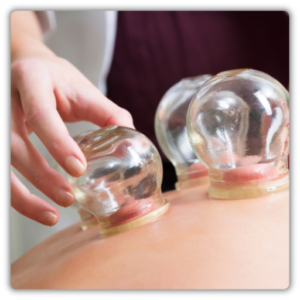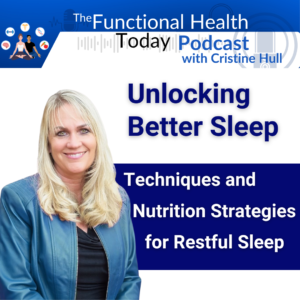What are the common symptoms of menopause?

Menopause, a significant life transition, brings with it various physical, emotional, and mental changes. Recognizing and understanding these symptoms can empower women to seek appropriate support and adopt coping strategies.
- Hot Flashes and Night Sweats
Hot flashes are characterized by sudden waves of heat, typically starting in the upper body and spreading. These episodes may last from seconds to minutes and often lead to sweating and flushing. Night sweats, occurring during sleep, can disrupt rest and contribute to fatigue. - Changes in Menstrual Cycles
As menopause approaches, menstruation becomes irregular. Periods may vary in length, flow, and frequency before ceasing entirely.
- Mood Swings and Emotional Shifts
Fluctuating hormone levels can trigger irritability, anxiety, and even depression. These changes are sometimes compounded by sleep disruptions and the stresses of adapting to life changes.
- Sleep Disturbances
Difficulty falling or staying asleep is common during menopause. Contributing factors include hormonal changes, night sweats, and increased stress, all of which can lead to feelings of exhaustion.
- Vaginal and Urinary Symptoms
Decreased estrogen levels can result in vaginal dryness, itching, or discomfort, which may affect sexual health. Some women also experience increased urinary tract infections or incontinence.
- Weight Gain and Slower Metabolism
Changes in metabolism can lead to gradual weight gain, often around the abdomen, even when maintaining the same diet and exercise routine.
- Bone and Joint Changes
Reduced estrogen can accelerate bone loss, increasing the risk of osteoporosis. Joint stiffness or discomfort may also become more noticeable.
- Skin, Hair, and Nail Changes
The decline in estrogen impacts collagen production, leading to drier, less elastic skin. Hair may thin or become brittle, and nails might weaken or split more easily.
These symptoms vary in intensity and duration, with some women experiencing mild effects and others facing more pronounced challenges. Proactive management through lifestyle changes, medical interventions, and emotional support can help ease the transition.
KEY POINTS
Menopause typically occurs around age 51 and is marked by symptoms such as hot flashes, mood swings, and irregular periods, signaling the end of a woman’s reproductive years.
Hormonal changes during menopause can lead to sleep disturbances, weight gain, and vaginal dryness, impacting physical and emotional well-being.
Lifestyle adjustments, such as regular exercise, a balanced diet, and stress management, can help alleviate bothersome symptoms and improve overall health during this transition.
Consulting a healthcare professional for personalized advice, including possible hormone therapy, can ease the challenges of menopause and enhance quality of life.

Pop in your email below, and we’ll zip it straight to your inbox so you never lose it!
What is the average age for the onset of menopause?
 Menopause is a normal part of aging that typically occurs around the age of 51, although age 40 can also be a factor for some women. Signs and symptoms of menopause, such as hot flashes, may begin in the years leading up to menopause, often referred to as perimenopause.
Menopause is a normal part of aging that typically occurs around the age of 51, although age 40 can also be a factor for some women. Signs and symptoms of menopause, such as hot flashes, may begin in the years leading up to menopause, often referred to as perimenopause.
While menopause can also bring mild menopausal symptoms, some women experience more severe symptoms that bother them, including mood swings and sleep disturbances. If you’ve gone through menopause, it’s important to manage your symptoms effectively, especially if you notice vaginal bleeding after menopause, which may indicate other health issues.
Premature menopause may occur due to genetics or health conditions, while surgical menopause happens after the removal of ovaries. Understanding the symptoms and causes associated with menopause can help women navigate this transition more comfortably.
What does premature menopause entail
Premature menopause refers to experiencing symptoms of menopause before the age of 40. Women may experience symptoms of menopause, such as hot flashes and emotional symptoms of menopause, which can be quite bothersome. While common menopause occurs around age 51, those in premature menopause may face severe menopausal symptoms that last for several years.
Although menopause is not a disease, it is a natural process that can also result in mild symptoms or severe symptoms. Factors that cause menopause include genetics and certain medical treatments. Understanding the time of menopause helps in seeking appropriate treatment for menopause to manage bothersome symptoms.
Looking to take control of your weight & nutrition?

How can I manage my menopause symptoms?
 Managing menopause symptoms can be challenging for many women as they transition into menopause. Hormone therapy is a common treatment option for those experiencing vasomotor symptoms like hot flashes or bleeding or spotting. Understanding that menopause is a natural process can help ease the journey.
Managing menopause symptoms can be challenging for many women as they transition into menopause. Hormone therapy is a common treatment option for those experiencing vasomotor symptoms like hot flashes or bleeding or spotting. Understanding that menopause is a natural process can help ease the journey.
During the years around menopause, typically between ages 45 and 55, ovaries stop releasing eggs and symptoms may include pain during sex and other discomforts. The North American Menopause Society recommends discussing symptoms you’re experiencing with a healthcare provider to find appropriate support.
Once you’ve reached menopause, which is officially marked when you’ve completed 12 months without a menstrual period, the symptoms of menopause may continue to affect your quality of life. It’s essential to explore various treatment options to manage any lingering effects, as menopause can also result in ongoing challenges.
What lifestyle changes can alleviate menopausal symptoms?
Making lifestyle changes can significantly help relieve bothersome symptoms of menopause. As menopause is a natural part of life, understanding that menopause usually causes symptoms such as hot flashes is crucial. Symptoms can be severe for several years during the transition to menopause.
When you realize symptoms bother you, consider adjustments like regular exercise, a balanced diet, and stress management techniques. These changes may alleviate symptoms that are related to menopause and help you navigate this significant phase. Remember, menopause is often a time of adjustment, but solutions exist.
Consulting a healthcare professional can identify what may be causing your symptoms and aid in the management of menopausal symptoms. Even after you’ve completed menopause, maintaining these healthy habits can ensure a smoother experience as menopause symptoms bother many.
What should I expect after completing menopause?
After completing menopause, which typically happens around age 52, you may notice various changes during menopause. While some women experience early menopause, most go through this transition at the average age of menopause. Menopause is a significant phase in life, and symptoms can persist for several years.
As you adjust, you might find that symptoms become less intense. Many women experience menopause differently, with some seeking treatments to help relieve your symptoms. It’s important to remember that due to menopause, your body will undergo various changes, and support can make a difference.
Women experiencing hormonal changes, including menopause, may find their fat loss journey impacted by shifts in metabolism and energy levels. Incorporating targeted strategies can make a significant difference.
For more insights, check out this guide on menopause that explores symptoms, signs, and practical tips for navigating this phase.











